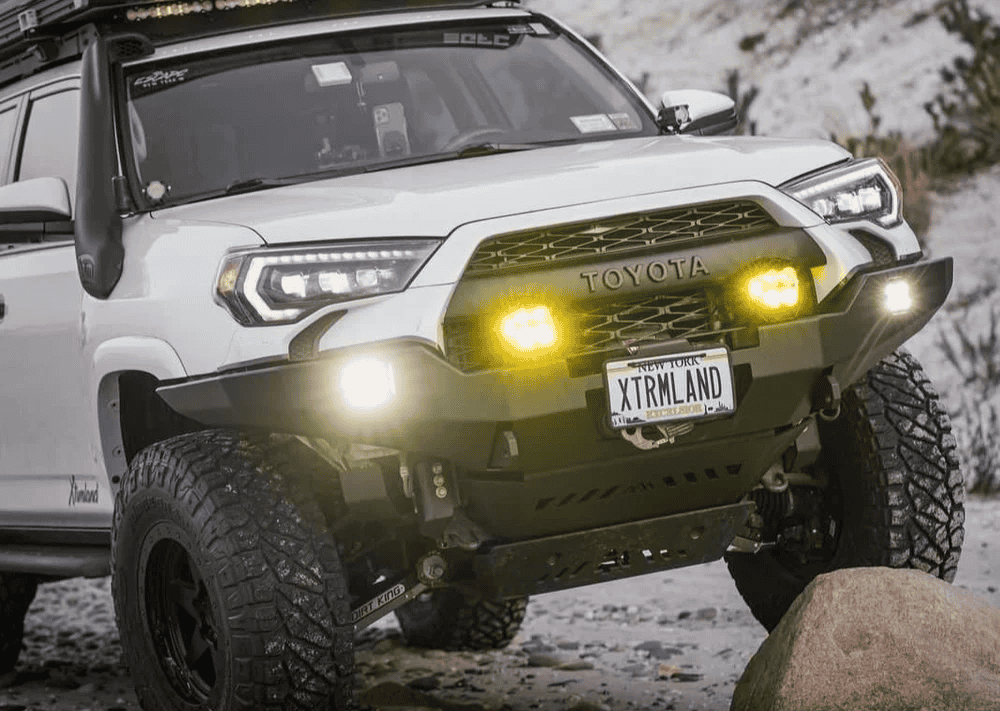Overland Vehicles

A back country truck camper is a compact living module that rides in the bed of a pickup, giving you shelter, a galley, and storage without a trailer in tow. The sweet spot is balancing comfort with off road capability. Start with payload. A half ton truck often runs out of headroom once water, batteries, and gear are on board, while a three quarter ton or one ton chassis gives safer margins for a back country truck camper on rough tracks. Center of gravity matters too. A lower, lighter shell handles better on uneven surfaces than a tall, heavy box.
Construction influences durability. Aluminum frame and composite panel shells resist rot and reduce weight. Wood framed campers can be warm and quiet but need careful sealing. Four season packages add insulation, thermal breaks, and protected plumbing so camps in shoulder seasons feel like early summer. A backcountry camper or back country camper should also offer secure tie downs, jacks rated for the full load, and a layout that keeps heavy items low and near the truck’s cab.
Power defines trip length. Lithium batteries, a smart charge system, and roof solar extend your time between plug ins. Propane or diesel heat keeps the shell livable without draining batteries. Water storage plus filtration makes remote creek camps feasible. Ventilation and a quiet fan prevent condensation on cold nights, while a small compressor fridge cuts ice runs.
A convertible dinette gives you room to work or eat on weather days, then switches to sleep mode at night. Overhead cupboards are great, but make sure large items sit low in bays near the floor. A wet bath saves space; many backcountry campers skip it entirely for a larger galley and an exterior shower.
Composite skins, bonded panels, and minimal overhangs reduce sway. The lighter the shell, the easier it is to tune suspension for a planted ride. Even with an efficient build, expect upgraded springs and shocks to manage the load.
An overland truck focuses on the vehicle first, turning the chassis into a reliable platform for long range travel. Add armor where it counts, choose tires that match terrain and weight, and tune the suspension for the final loaded mass. With a canopy or topper, a drawer system, and a roof tent or compact camper module, the truck remains nimble while still carrying sleep and cook systems.
All terrain tires with strong sidewalls support a loaded rig on rock, sand, and washboard. Suspension should match the constant weight, not just the empty truck. Proper spring rate and quality dampers keep the truck controlled, which is crucial when a backcountry camper sits above the bed rails.
Paper maps plus offline navigation keep you oriented when signals fade. A recovery kit with soft shackles, a rated rope, traction boards, and a shovel solves most stuck situations. Communication tools like satellite messengers and a well stocked first aid kit round out the basics.
A compact awning turns rain into white noise while you cook. A portable fire pan and a propane cooker protect fragile sites. Trash and grey water containment preserve the landscapes that make these trips special.
Some travelers prefer back country travel trailers to keep the truck bed free. These trailers use high clearance axles, strong frames, and independent suspension to follow you down uneven tracks. They can carry more water and gear than a slide in shell, and they park as a separate basecamp. The tradeoff is length, turning radius, and the need to manage a hitch on tight switchbacks.
A slide in backcountry camper offers flexibility and resale options. Chassis mount systems can ride lower, feel more integrated, and support larger tanks, though they are permanent. The right choice depends on your travel window, storage space, and whether the truck doubles as a daily driver.
Back country campers work well for solo travelers and pairs. Families often look at backcountry rv layouts or compact back country travel trailers to gain bunks and indoor space. Consider total trip weight and where you plan to camp before choosing.
Lightweight composite shells like a camp x camper style build show how materials can cut mass without losing strength. Rugged pop tops drop height for better handling. Hard side models are quieter in storms and hold heat more easily.
Northwest Arkansas offers a perfect proving ground for remote camping, with forest roads, rivers, and seasonal weather that test insulation, power, and storage plans. When you are ready to fine tune a truck or camper for the Ozarks or farther afield, explore Overland Rigs to see how a purpose built system comes together. For a tailored path from suspension to power and interior, review Custom Overland Upfit. If you want to understand our process and what to expect from first call to handoff, visit Why Choose OZK Customs.
OZK Customs designs complete back country solutions for trucks and shells alike. We match payload to camper layouts, dial in suspension for loaded weight, and integrate power, water, and heat so your setup thrives far from pavement. From armor and lighting to interiors that stay quiet and warm, our team builds for real miles, not showroom floors. Share your routes and your must have gear, and we will shape a plan that keeps you comfortable, safe, and ready for the next ridge line in Fayetteville and beyond.
Ready to turn your truck into a true back country home base? OZK Customs designs and builds complete overland systems, from suspension and armor to power, water, heat, and interiors. Tell us how and where you travel, and we will map a build that fits your payload, range, and comfort goals. Share a few trip details and get a tailored plan today.
ADDRESS:
6159 E Huntsville Rd, Fayetteville, AR 72701
PHONE:
(479) 326-9200
EMAIL:
info@ozkvans.com